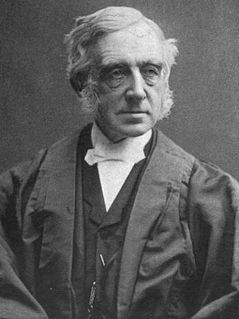A Quote by Amy-Jill Levine
Our responsibility is to love God and to love our neighbour which is what Jesus taught and it's also what Judaism taught - and that would make sense because Jesus was Jewish.
Related Quotes
You may say, 'God doesn't hate anybody. God is love.' No, my friend. You need to understand something. Jesus Christ taught, the prophets taught, the apostles taught this: that apart from the grace of God revealed in Jesus Christ our Lord the only thing left for you is the wrath, the fierce anger of God because of your rebellion and your sin.
For us Christians, love of neighbour springs from love of God; and it is its most limpid expression. Here one tries to love one's neighbour, but also to allow oneself to be loved by one's neighbour. These two attitudes go together, one cannot be exercised without the other. Printed on the letterhead of the Missionaries of Charity are these words of Jesus: "as you did it to one of the least of these my brethren, you did it to me". Loving God in our brethren and loving our brethren in God.
What is God like? Because millions and millions of people were taught that the primary message - the center of the Gospel of Jesus - is that God is going to send you to hell, unless you believe in Jesus. And so, what gets, subtlely, sort of caught and taught is that Jesus rescues you from God. But what kind of God is that; that we would need to be rescued from this God? How could that God ever be good; how could that God ever be trusted? And how could that ever be good news.
Real love is demanding. I would fail in my mission if I did not clearly tell you so. For it was Jesus - our Jesus himself - who said: 'You are my friends if you do what I command you'. Love demands effort and a personal commitment to the will of God. It means discipline and sacrifice, but it also means joy and human fulfilment.
Who is Jesus to me? Jesus is the Word made Flesh. Jesus is the Bread of Life. Jesus is the Victim offered for our sins on the cross. Jesus is the sacrifice offered at holy Mass for the sins of the world and for mine. Jesus is the Word - to be spoken. Jesus is the Truth - to be told. Jesus is the Way - to be walked. Jesus is the Light - to be lit. Jesus is the Life - to be lived. Jesus is the Love - to be loved
"In each of our lives Jesus comes as the Bread of Life - to be eaten, to be consumed by us. This is how He loves us. Then Jesus comes in our human life as the hungry one, the other, hoping to be fed with the Bread of our life, our hearts by loving, and our hands by serving. In loving and serving, we prove that we have been created in the likeness of God, for God is Love and when we love we are like God. This is what Jesus meant when He said, "Be perfect as your Father in heaven is perfect.
Not to abide in Jesus’ love would mean that we stop believing that we are loved by Jesus. We look at our circumstances - perhaps persecution or disease or abandonment - and we conclude that we are not loved by Jesus anymore. That’s the opposite of abiding in the love of Jesus. So abiding in his love means continuing to believe, moment by moment, that we are loved.
I was brought up by a Victorian Grandmother. We were taught to work jolly hard. We were taught to prove yourself; we were taught self reliance; we were taught to live within our income. You were taught that cleanliness is next to Godliness. You were taught self respect. You were taught always to give a hand to your neighbour. You were taught tremendous pride in your country. All of these things are Victorian values. They are also perennial values. You don't hear so much about these things these days, but they were good values and they led to tremendous improvements in the standard of living.
People need to learn how to respond to each other's hatreds with love - which is what Jesus taught us, which is what Buddha came here to teach us, which is what Muhammad taught us, which is what all of the great spiritual masters who have ever walked among us who live at those highest energies taught us - responding to force with more force will just create more problems.
Now let us gather into one bouquet, from the King's garden, these seven fragrant flowers: Jesus the Son of God; Jesus our sin-bearer; Jesus the giver of eternal life; Jesus the keeper of our undying souls; Jesus the hearer of our prayers; Jesus the chastener who can turn crosses into crowns; and Jesus the wonder-worker who changes us into eternal likeness unto Himself! These flowers will keep sweet till heaven dawns.
May we incorporate into our own lives the divine principles which he Joseph Smith so beautifully taught by example, that we, ourselves, might live more completely the gospel of Jesus Christ. . . May our lives reflect the knowledge we have that God lives, that Jesus Christ is His son, that Joseph Smith was a prophet and that we are led today by another prophet of God - even President Gordon B. Hinckley.
The commandment of God is, that we love Our Lord in all our heart, in all our soul, in all our thought. In all our heart; that is, in all our understanding without erring. In all our soul; that is, in all our will without gainsaying. In all our their ought; that is, that we think on Him without forgetting. In this manner is very love and true, that is work of man's will. For love is a willful stirring of our thoughts unto God, so that it receive nothing that is against the love of Jesus Christ, and therewith that it be lasting in sweetness of devotion; and that is the perfection of this life.
Where possible Paul avoids quoting the teaching of Jesus, in fact even mentioning it. If we had to rely on Paul, we should not know that Jesus taught in parables, had delivered the sermon on the mount, and had taught His disciples the 'Our Father.' Even where they are specially relevant, Paul passes over the words of the Lord.































